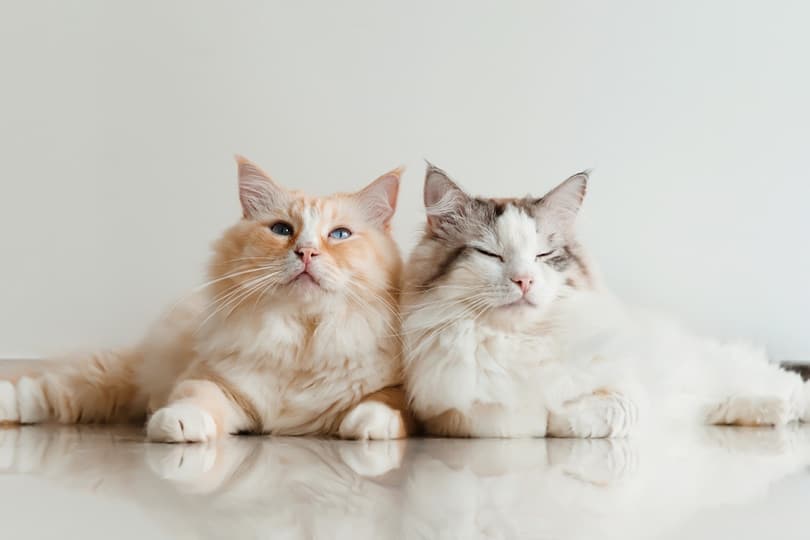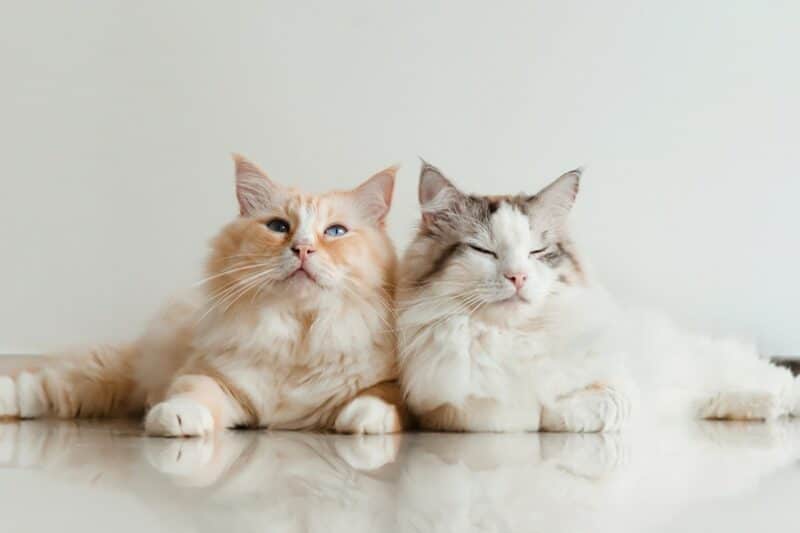Dogs are very high-maintenance pets as, in addition to food, attention, and affection, they also need daily exercise and training. Some dogs, especially high-energy breeds like Australian Shepherds or Labrador Retrievers, need a lot of exercise. When we compare the needs of cats to that of dogs, it’s clear that dogs are higher maintenance.
Potential pet parents on the hunt for a lower-maintenance pet may think cats fit the bill perfectly. They don’t need to go for daily walks and won’t tear apart the house if they feel nervous while you’re away.
While cats can be fiercely independent, they aren’t as hands-off as some might think. They have a lot of needs that need to be met daily and aren’t a pet you can adopt and let fend for themselves. Keep reading to learn more.

Food
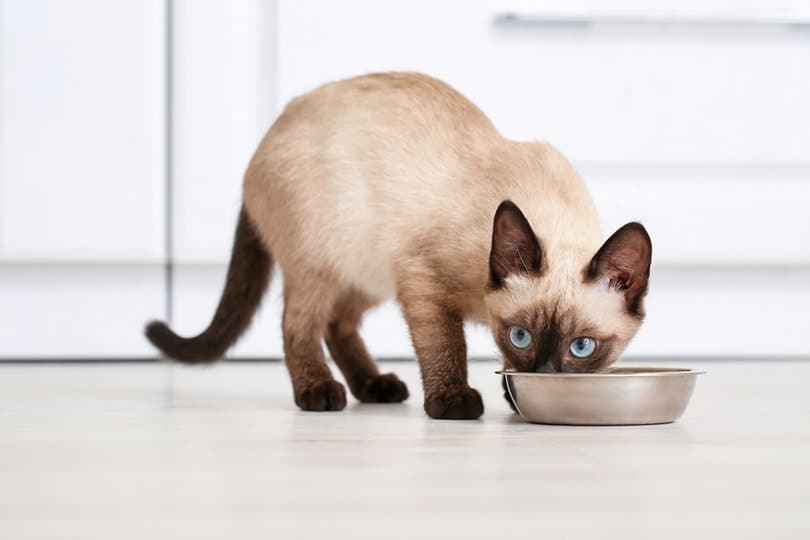
Cats are creatures of habit, so they need a regular feeding schedule to give them the predictability they crave. Most vets recommend feeding your cat at least two meals a day.
Cats have specific nutritional needs that you must meet to ensure they can live long and healthy lives. Take taurine, for example. Taurine is an amino acid that’s found only in animal-based proteins. Your cat needs it because it’s critical for vision, digestion, heart muscle function, and optimal immune system functioning.
Feeding your cat a diet deficient in taurine can develop dilated cardiomyopathy, a condition that weakens the heart’s muscle cells. Your cat may also develop feline retinal degeneration, leading to irreversible blindness.
Unlike dogs, cats are obligate carnivores, meaning their health relies on nutrients found only in animal products. Not only do they not digest plant material well, but they also need the essential nutrients from meat.
A lack of amino acids from protein will lead to health problems, so it’s necessary for potential cat owners to do some nutrition research to ensure the diet they’ll be feeding their pet supports a healthy life.
Grooming
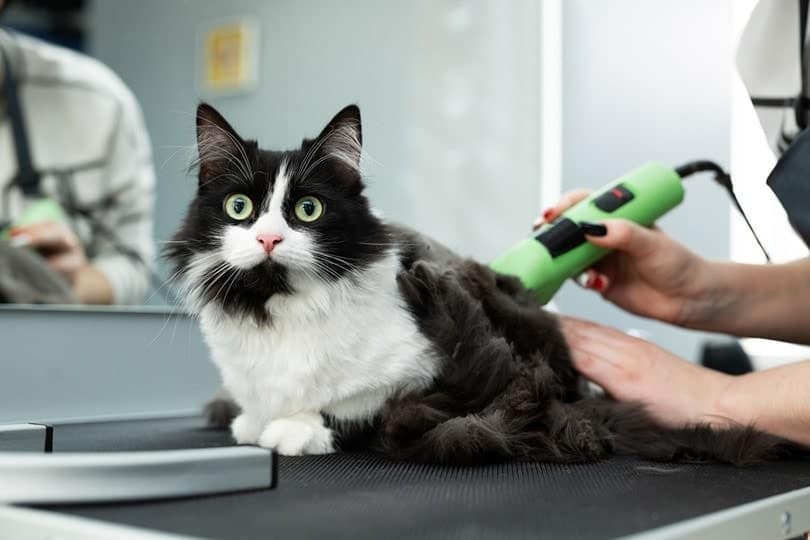
Grooming is another essential part of cat parenthood.
Many people think that since cats don’t need baths the same way that dogs do, they don’t need to do any grooming at all. This couldn’t be further from the truth. Your kitty will require brushing once or twice a week to keep its coat and fur looking its best. Cat breeds with long or silky coats must be brushed daily to prevent tangles and matting.
Cats can sometimes control their nails themselves through physical activity and by using their scratching posts, but there may come a time when you need to trim their nails.
Cutting their nails will not only protect you from their razor-sharp claws but can also prevent painful and broken claws that can occur when the sharp tips become embedded in the carpet, curtains, or furniture.
Housing
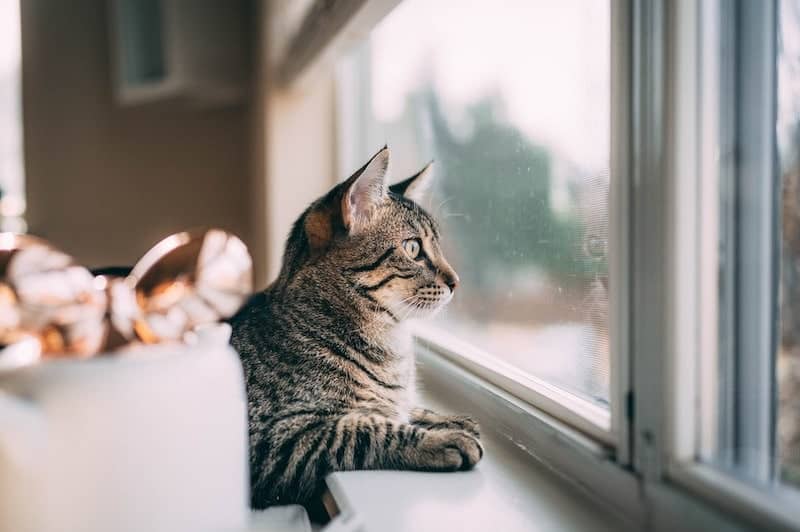
Both cats and dogs need a roof over their heads to survive. Cats can get into a lot of trouble if they stay outdoors unsupervised for long periods. Some of the biggest concerns for outdoor cats include:
- Diseases like feline leukemia
- Parasites like fleas or ticks
- Other cats
- Cars
- Loose dogs
- Wild animals
- Toxins
- Poisons
- Poison plants or flowers
- Animal cruelty
Outdoor cats can also cause environmental concerns as they have a high prey drive. As a result, cats are actually considered one of the world’s most invasive species and threaten global biodiversity.
If you do not plan to keep your cat indoors 24/7, you must ensure that their outdoor time is spent safely. For example, build an enclosed catio so it can spend time outside without threatening local wildlife, or invest in a leash so you can explore together without wreaking havoc on your neighborhood.
Toileting
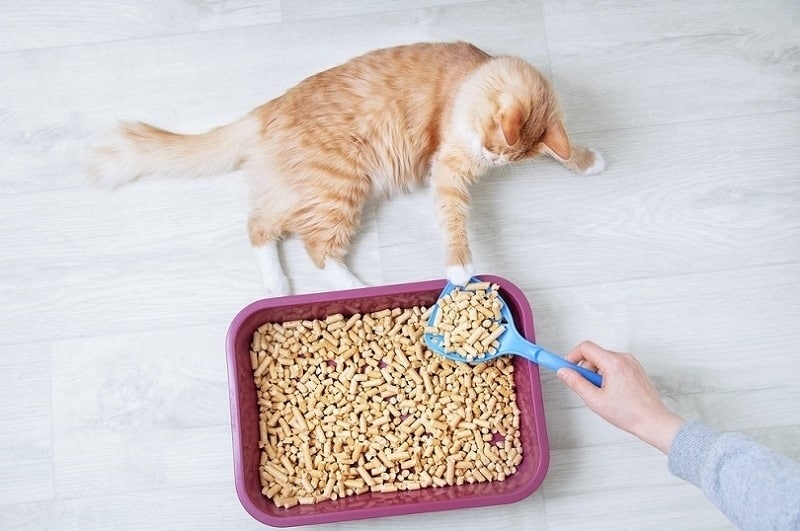
Cats are great because they don’t whine to be let outside to do their business like dogs, but the downside is that you must contend with cat litter daily. Dogs will go into the yard to eliminate, keeping offensive odors out of your home, but cats need a particular area of your home dedicated to their toileting.
Litter is something you’ll need to budget for as it is a recurring expense, just like your cat’s food. You’ll need to scoop it every day; otherwise, your cat may begin eliminating outside the box, and your home will start to smell.
Entertainment
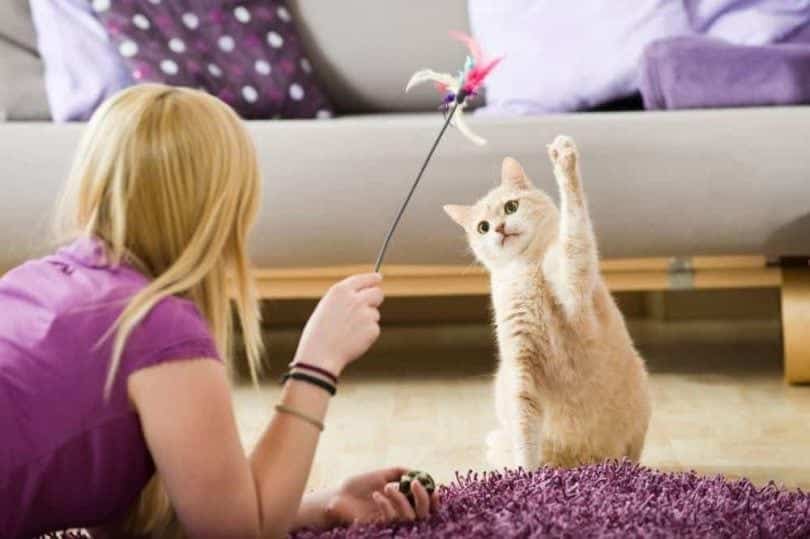
Cats don’t need to be taken for daily walks or let outside to run off some steam as dogs do. But just because you’re not playing fetch with your cat doesn’t mean you don’t have to provide them with sources of entertainment.
Cats that do not get enough mental or physical stimulation will become bored, and unfortunately, boredom and cats do not mix. A bored kitty may develop inappropriate behaviors such as scratching, over-vocalization, excessive sleeping, or aggression.
You must spend some time every day playing with your cat in some capacity. Buy different types of toys to see which your cat prefers.
You can’t be home all day, so buy your cat a scratching post and cat tree so your kitty can have some entertainment to pass the time when you’re away.
- See Also: Why Are Cats So Much Sassier Than Dogs?
Health
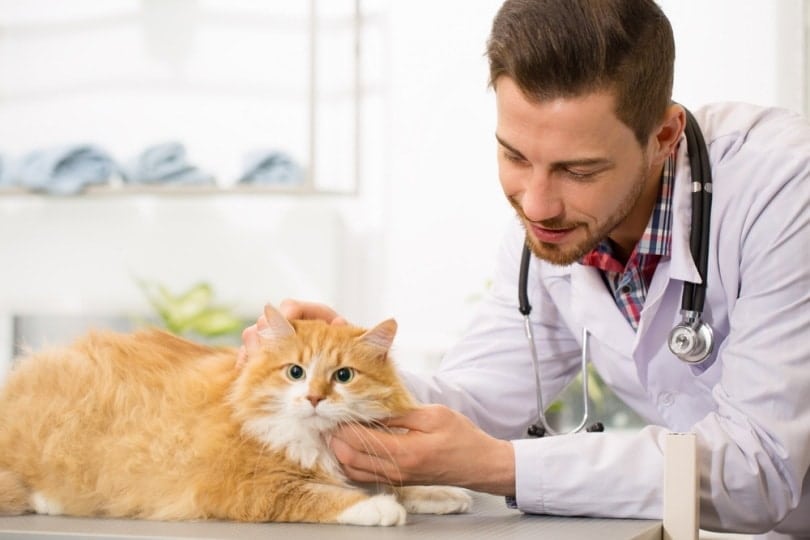
Cats have a much longer life expectancy than most dogs, living to around 15 years on average. Since they live longer, pet owners must be prepared to care for their cats for their entire life. A longer lifespan equals more expenses like food and veterinary care and many more years of taking care of your pet.
Cats are fantastic at hiding illness or pain and have actually evolved to be this way. When cats were in the wild, they’d do everything in their power to avoid attracting the attention of their predators. Sick, slow, or injured cats would have become easy targets in the wild.
While your domesticated kitty is safe from predators in your home, it’s still ingrained in its brain that it needs to hide any signs of illness or pain to protect itself. Your kitty may exhibit subtle symptoms that indicate illness, so you must be in tune with your pet to detect health problems. Some signs to be on the lookout for include:
- Sitting in strange positions (e.g., hunched over)
- Low energy
- Changes in coat appearance
- Shedding more than usual
- Eye discharge
- Nose discharge
- Breathing changes
- Dehydration
- Weight loss
A visit to the vet should be in order if you notice any unusual behaviors in your cat.
- See Also: How Strong Is Your Cat’s Memory?

Final Thoughts
Cats are self-sustainable for many things, but we wouldn’t consider them a low-maintenance pet. Properly caring for a cat requires a lot of time, energy, space, and money. It is a huge responsibility, and the decision to adopt one should not be taken lightly. So, if you’re searching for a low-maintenance pet, a cat is not it.
Featured Image Credit: xixicatphotos, Shutterstock

